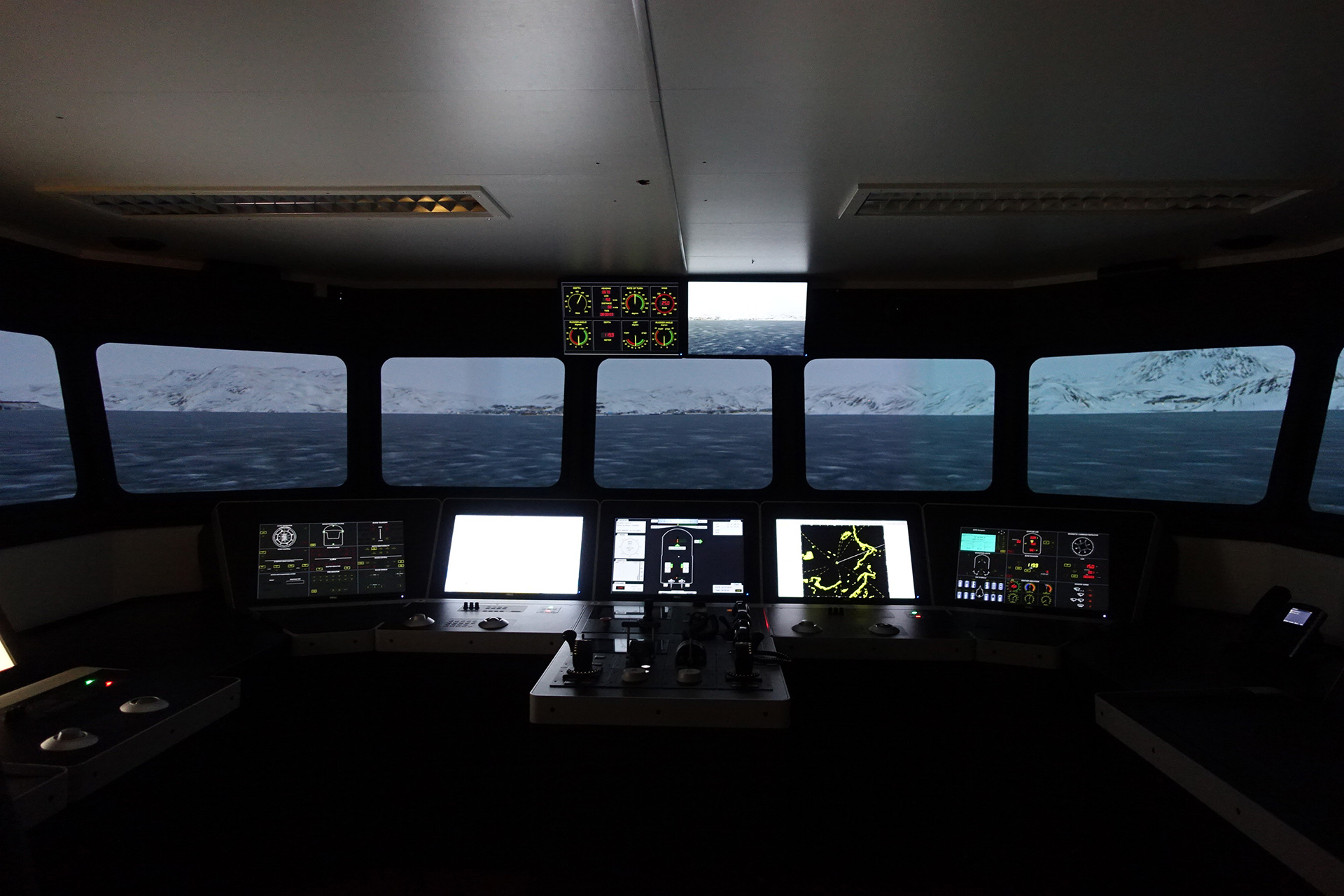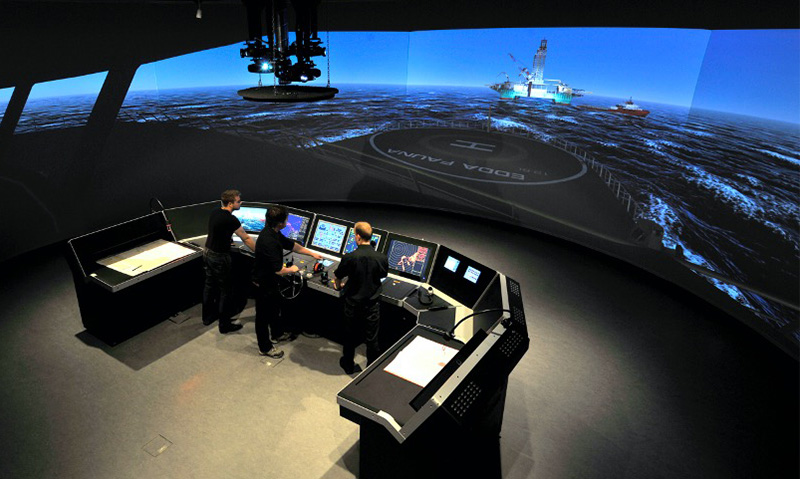Maritime Education and Training (MET) is to a large extent built upon training small groups of students in technologically mediated settings to certify them. Simulators are becoming increasingly common medium to train the seafarers for sophisticated operational environments and different practice scenarios and as a tool for training transfer in a simulated environment.
The evolution of maritime simulators has come a long way from simple paper-based simulations to a “full motion, 360-degree” bridge simulators today. Virtual Reality (VR), Augmented Reality (AR) simulators are already in use on multiple segments while Mixed Reality (MR) simulators are on the horizon.
There is a growing need for empirical research to explore what happens in simulator-based learning and to better understand how students and instructors interact to make use of knowledge and experiences as means for training and assessment in these settings.
 Ship’s bridge simulator at USN. Photo: COAST
Ship’s bridge simulator at USN. Photo: COAST
COAST is investigating how simulator development and transformations in simulated learning and assessment activities create new opportunities and challenges for students and instructors in maritime education. COAST addresses the development of novel simulator training and assessment methods, taking future needs of the industry, gender perspectives, technological advances and research-based pedagogical approaches into account.
Focus Area-2 will address the below task measures synergizing with other focus areas of COAST:
- Use novel research in different maritime simulator training and assessment interventions
- Deploy technologically advanced training tools, Virtual and Augmented reality, to enhance learning opportunities
- Develop and synthesize best simulator-practices from the existing maritime navigation curriculum in the consortium
- Disseminate results to the academic environments of higher education and to the mass media through publications, conferences, focus group discussions and workshops.
- Innovate Maritime Education and Training by increased cooperation between students, instructors and researchers
- Involve students in the development of simulator activities
A research-based simulator training approach includes designing interventions exploring when, why and how to make use of simulator-based training and assessment practices in briefing, exercise and debriefing activities. During these intervention exercises, instructors and students will engage with various digital collaboration-tools for simulated navigation-exercises.
We will experiment with (cloud based simulations), Virtual (VR), Augmented (AR) and Mixed Reality (MR) technologies to record, revise and assess student activities across campuses and custom “hybrid reality” by merging of real and virtual worlds to produce new environments and visualizations resembling seafarers work environment.
The COAST team at the University of South-Eastern Norway (USN) is primarily responsible for this Focus Area.
